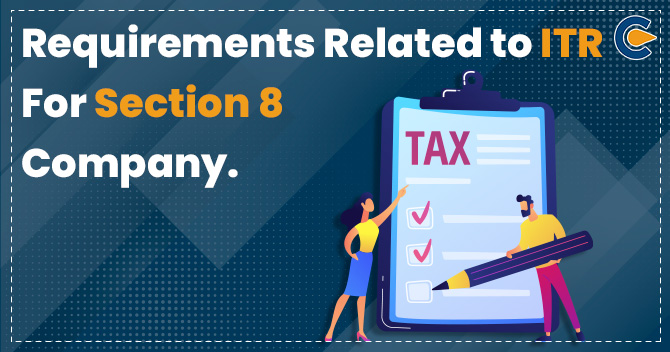A Section 8 company serves as a registered charitable institution that falls under the Companies Act, 2013. Its objective is to promote science, commerce, art, sports, religion, research, environmental protection, etc. The write-up shall detail the different exemptions available to these companies under different legislation.
Pros of Section 8 Companies
- Section 8 company possesses a legal status and is registered under the Companies Act, 2013[1]. Due to this reason, their constitutional framework is more flexible and transparent.
- Section 8 companies are more credible than any other Non-profit institution. It is because they are liable to abide by stringent compliances. This prevents them from committing any non-conformity that hampers the interest of the connected parties or members.
- Section 8 companies have better access to government-based subsidies and benefits as compared to Societies or trusts.
Different exemptions available to Section 8 companies under the Companies Act, 2013
- Directorship in Section 8 Companies shall not be taken into account for estimating the ceiling regarding the maximum no. of directorships as cited u/s 165 of the Act.
- A general meeting may be called by providing notification
- Unlike other companies, Section 8 Company is not liable to notify members regarding the conduct of the general meeting before 21 days. This duration has been shortened under the Act by seven days.
- A Section 8 company is not entitled to conduct four meetings every six calendar months. The prevailing Act allows them to conduct only one meeting in the said timeframe.
- The requirements like recording minutes of the board meeting, general meeting, and other resolutions do not apply to these companies. But, the minutes of meetings can be recorded within thirty days of the meeting’s conclusion in cases where the article of the company provides for confirmation via circulation of minutes.
- Any corporate or establishment can serve as an member of a Section 8 company.
- Section 149(1) of the Act does not apply to the Section 8 entities; such companies are not obligated to appoint the independent Director. Moreover, for the said reason, the audit committee of such a company shall also not obligate to have Independent Directors as a member of its Board.
- Section 8 entities are not liable to appoint a practising CS as its Company Secretary.
- These companies are also exempted from following secretarial standards
- Section 178 of the Act does not encompass the Section 8 Company. Accordingly, such companies are not obligated to have a Remuneration and Nomination Committee. Further, they are exempted from forming a Stakeholders Relationship Committee.
- There are various sections such as Section 150, 152(5), 160, so on and so forth that do not cover the Section 8 companies.
Exemption available under Income Tax Act, 1961
Section 8 company has access to certain exemptions available under the IT Act. Since their object revolves around a “charitable purpose”, they have the leverage to avail various benefits and tax cut u/s 80G Income Tax Act, 1961.
The section below reflects the list of exemptions or reliefs available to these companies at large;
- Section 8 companies are exempted from paying stamp duty applicable to other companies. The charges for stamp duty are considerably less for these institutions.
- Under the IT Act, 1961, the donors of the Section 8 entity can claim a fifty per cent rebate for donations they made. According to Section 80G, it shall remain valid for 1-3 years.
- If Section 8 entity registered u/s 12AA of the IT Act, its profits shall remain untouched from any tax implication.
- Every year the Central Government releases some compliance that releases tax burden from these companies.
Exemption available under Indian Stamp Act, 1899
- Stamp duty on MOA and AOA of the Section 8 entity or on any increase in share capital is regulated by Indian Stamp Act, 1899.
- Most of the states like Maharashtra, Delhi, and so on facilitate reduced rates for stamp duty on AOA/MOA or on the increase in the share capital of the Section 8 Company.
Schemes for the Section 8 companies
- The central and state government has a growth-driven scheme to promote section 8 entities for charitable purposes and rural products.
- The central government aims to promote selected rural products of Section 8 companies with the assistance of experts. Besides, the government also intends to create a comprehensive value chain for these institutions via professionals help.
- These products are generally made by women-led self-help groups, farmers-producers etc. For this, the government renders various exemptions to the Companies falling under these plans or schemes.
Conclusion
Section 8 company serves the helping hand of the government to serve its philanthropic objectives. Since profit is not their core objection, these institutions need consistent funds and exemptions to fuel their objectives. Exemptions mentioned above are more likely to provide much-needed aid to these firms.
Read our Article:What is the Advantages and Disadvantages of Section 8 Company in India?











